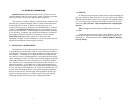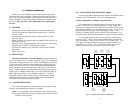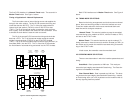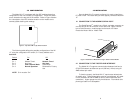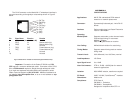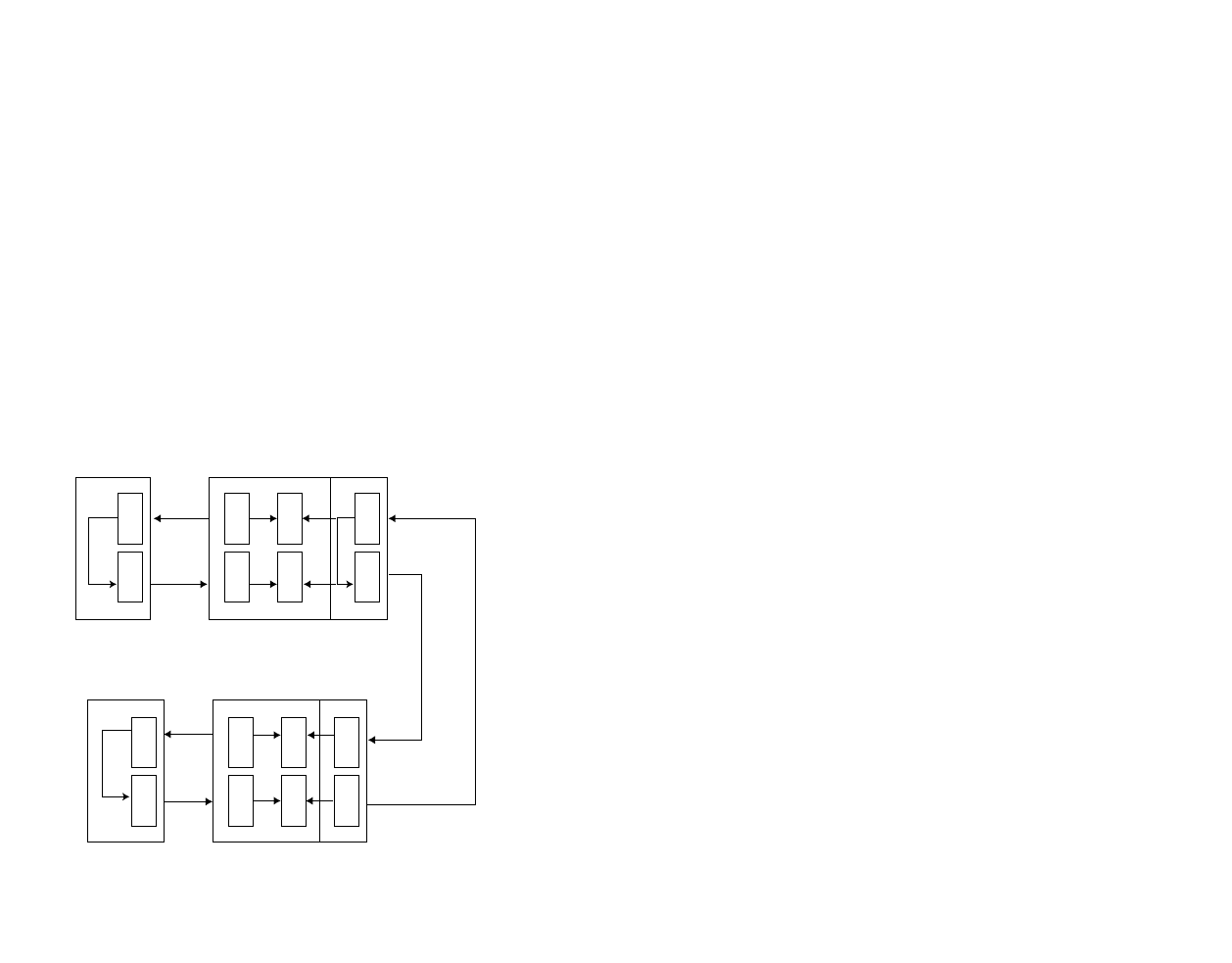
The first G.703 interface is in Network Timed mode. The second is in
Modem Timed mode. See Figure 1 above.
Timing of Application 2: Network Replacement
The first modem uses an internal timing source and supplies the
timing for the entire system. The first G.703 recovers the timing and
clocks the data into the FIFO. The Tx of the first modem takes its
internal clock and sends it (TXCLK1) to the G.703 FIFO for data
(TXD1). The Rx of the second modem recovers the clock and pres-
ents a “jittery” clock and data to the second G.703’s transmitter. It has
to smooth the clock before it uses the clock to transmit.
The Rx of the second G.703 recovers the timing and clocks the
data into a FIFO. The Tx of the second modem sends the second
modem’s recovered clock (TXCLK1) to the G.703 FIFO for data
(TXD1). The Rx of the first modem uses its internal clock (RXCLK1) to
send data (RXD1) into the FIFO. The Tx of the first G.703 smooths
the first modem’s recovered timing and sends it to the FIFO for data.
Both G.703 interfaces are in Modem Timed mode. See Figure 2
above.
2.4 TIMING MODE SELECTIONS
Based on the timing arrangements and clock sources mentioned
above, there are two timing modes in which the interface can work.
These two modes select the clock sources mentioned above and
determine which clock gets smoothed.
Network Timed - This sets the interface to pass the smoothed
recovered timing to the modem as XCLK1, with the Rx data as TXD1,
and also to the G.703 Tx side.
Modem Timed - This sets the interface to use the modem’s Tx
timing (recovered or internal source) to send the Rx data (as TXD1) to
the modem and to smooth the modem’s recovered timing for transmit-
ting on the G.703 Tx side.
In both cases, the transmitter uses the smoothed clock.
2.5 OPERATING MODE SELECTIONS
There are two data modes in which the interface passes data and
timing:
Octet Mode - Data is passed at a 128K rate. This mode pre-
serves the byte integrity associated with Octet timing. The Octet tim-
ing frame is embedded in the data.
Clear Channel Mode - Data is passed at a 64K rate. This does
not preserve the byte integrity associated with Octet timing. Instead,
an Octet timing alarm (on or off) is passed over the modem similar to
the way signaling leads are passed.
5 6
Figure 2. Network Replacement Configuration
RX
TX
CSU
DTE
G.703
RX
RX
RX
RX
RX
2 or 4 Wire
TX
G.703 INTF-
MODEM
TIMED MODE
SECOND MODEM
FIFO
TX
SMOOTHED
TX
TX
TX
FIFO
FIFO
G.703
FIFO
HOST
MODEM -
RECOVERED
TIMING
FIRST MODEM
HOST
MODEM -
INTERNAL
TIMING
G.703 INTF-
MODEM
TIMED MODE
CSU
DTE
G.703 TX
SMOOTHS
RX MODEM
CLOCK
G.703 TX SMOOTHS
RX MODEM CLOCK




